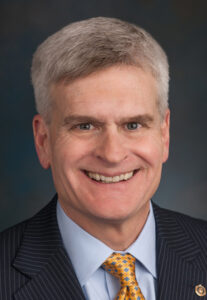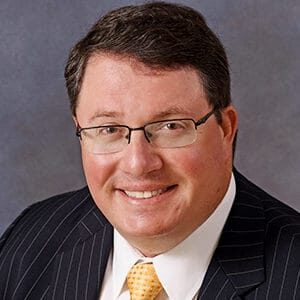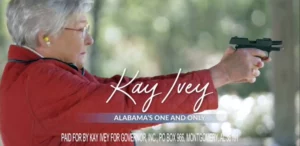The most we manage to produce in the wake of another school shooting is a spate of arguments back and forth. Never any action.
The satirical website The Onion is infamous for this headline, posted after almost every mass shooting: “‘No Way to Prevent This,’ Says the Only Nation Where This Regularly Happens.”
After the shooting in Uvalde, Texas, The Onion posted that item 21 times, filling most of its homepage. Each article referenced a different shooting, with the most recent incident at Robb Elementary School in Uvalde — where 19 children and two teachers were killed — at the top. Other articles had datelines for Atlanta, Indianapolis, Boulder and others.
One of the reasons prevention of mass shootings seems to evade Americans has to do with our peculiar approach to arguing an issue into inaction.
“One of the reasons prevention of mass shootings seems to evade Americans has to do with our peculiar approach to arguing an issue into inaction.”
The arguments of gun advocates are all over the debate map. Ironically, some use a dubious debate tactic called the “shotgun” approach. When a debater has little grasp of the main issue, and when in danger of defeat, he chooses to throw a large number of baseless arguments at his opponent in hopes of getting the opponent to waste all his time trying to refute all those allegations. It’s called the “shotgun” approach because the arguments are like the pellets exploding from a shell fired from a 12-gauge shotgun.
Thus, even insipid and absurd arguments detract from the main points that ought to be debated. We get lost in a forest of noise.

Bill Cassady
Sen. Bill Cassidy of Louisiana, as if on cue, offered one such absurd argument after the Uvalde shooting. Asked why anyone needs an AR-15, he responded: “I’m law abiding, I’ve never done anything, I use it to kill feral pigs. The action of a criminal deprives me of my right.”
Amid a flurry of such distractions, children get compared to feral pigs and it seems perfectly reasonable for an 18-year-old to need an assault rifle.
When we cut through the clutter of the shotgun arguments, we find three primary arguments for unfettered gun ownership offered up every time after a mass shooting:
- “This is not the time to discuss guns.”
- “If you give the liberals an inch, they’ll take a mile.”
- “The Second Amendment is sacred.”
Not the right time
In the aftermath of a mass shooting, Democrats politicize the moment to attack unlimited gun rights. Then Republicans accuse Democrats of “using” the tragedy to score political points and declare that this time of mourning is “not the right time” to debate gun control.
The irony is that “not the right time” is sheer political posturing. “Not the right time” has nothing at all to do with killing children or gun violence. Yet the argument persists in the conservative argument playbook.

Randy Fine
For example, Florida legislator Randy Fine, angered by President Joe Biden’s insistence that this time we must actually do something about gun violence, trotted out the commonplace reply of Republicans, saying Biden “turned his speech into a speech on gun control. It was hugely inappropriate, hugely inappropriate to do that today.”
Fine repeated words that have been said time and again in the face of tragedy: It is too soon after a horrific slaughter of innocents at the hands of a gunman. Even though such tragedies are happening with ever greater frequency.
There’s no substance to the claim that a tragedy should not be discussed right after it happens. If not now, when will be the right time? The purpose of this bit of argumentative chicanery is to postpone action.
What if now is the right time? There’s a marvelous word in the Greek New Testament that may guide us. The word is kairos — a combination of “crisis” and “opportunity.” Instead of an opportunity for more bad arguments, the issue of guns may finally have arrived at a kairotic moment. Kairos basically means “at the right time.” The Bible has a colorful way of expressing the meaning of kairos, “In the fullness of time.”
With our hearts full of grief expressed as shock, anger, dismay and cries for action, this may be the kairotic moment for Americans to deal with our gun fetish. Instead of posturing, now politicians need to legislate. This is the moment. This is the right time. There’s no better time than now.
“Instead of posturing, now politicians need to legislate.”
With full hearts, let us turn our attention to the task of doing something about the violence. Make a list of all the possible solutions. List the strengths and weaknesses of each suggested solution. No hyperbole. No distracting arguments about trying to destroy the Second Amendment.
The ‘divine foot’ argument
To understand the second common objection to common-sense gun control, return for another glance at Rep. Fine’s argument. He later mocked the backlash to his first tweet in another tweet: “The reaction exposes the lie of the left that they just want ‘common sense gun control.’ They want one thing and one thing only — gun confiscation and an end to the 2A — and the notion that Americans will exercise their right to fight them makes them go crazy. Boo hoo.”
Note the complete lack of empathy in the words of Rep. Fine. His motive seems to be “owning the liberals” rather than reducing gun-related violence. It is an irrational argument. This argument doesn’t answer the question of what to do about gun-related violence at all. It mocks liberals. It uses hyperbole to make the improbable leap from some gun control legislation to gun confiscation. It disregards the horror of school shootings. Rep. Fine and his kind don’t seem to care about the repeated tragedies; they only care in some weird way that they be perceived as protecting the Second Amendment.
He makes a fear-based appeal that the liberals are coming to confiscate all guns. This irrational argument is known as the “divine foot” argument, and it afflicts both left and right.
“He makes a fear-based appeal that the liberals are coming to confiscate all guns.”
In one of the best-known examples from the left, Harvard biology professor Richard Lewontin in 1997 defended the scientific teaching of evolution against religious attack by saying, “We cannot allow a divine foot in the door.”
He expressed a typical argument for those unwilling to give an inch for fear that one small concession will lead to a total defeat. On the right, gun advocates use the same argument: “We can’t allow restrictions on assault rifles because if they take away assault rifles, eventually they will take away pistols, hunting rifles, my gun collection and B.B. guns.”
In other words, any gun-control legislation, regardless how sensible, allows the “radical liberal” foot in the door. Once they come for assault rifles, they will come for all the guns in the nation.
This argument is not compelling. Are we being told that the death of those 19 children, two teachers and all the other gun-related deaths of children are a necessary price to pay for the defense of the Second Amendment? Are some of our children offered up as unknowing sacrifices? Are the children sacrificed on the altar of guns, freedom and the Second Amendment as a way of appeasing the masses?
This sounds like child sacrifice.
And yet with 19 children and two teachers dead in Uvalde, the NRA and an array of politicians gathered in Texas to express outrage at the radical leftist attempts to impose any kind of gun control. What passes for empathy will be a “moment of silence,” a bit of weeping over the threat to the Second Amendment, and a lot of hyperbole, misdirection, and pathetic arguments about the right to bear arms.
“These are absurd times, and absurd arguments seem to have persuasive power over people who live in fear.”
Would the same strange bit of hyperbole attach to those insisting on sacrificing a certain number of children to the god of guns, freedom and the Second Amendment?
These are absurd times, and absurd arguments seem to have persuasive power over people who live in fear.
The Second Amendment is sacred
In one recent ad, the governor of Alabama, Kay Ivey, touts her role in making it legal to carry a concealed weapon in her state. Sitting at her desk with a purse in plain sight, she says: “For years, I’ve held a gun permit for safety, security and just cause the Second Amendment is sacred. So I passed concealed carry for Alabamians to arm themselves without government interference. That way, you don’t know who’s got what in their purse, lipstick, an iPhone or maybe a little Smith and Wesson 38.”

Our gun culture has birthed a gun idolatry. Former Gov. Pat McCrory of North Carolina said he lost the Republican race for U.S. Senate because his primary challenger toted a pistol in his pants in television advertisements. Looking strong and tough with a gun has become the favorite political symbol of politicians on the right. The gun symbolizes so much of the conservative message of power, strength and intimidation. The gun-as-symbol gives the sense that it is the snake on a stick with the power to heal the people and save the land from all that afflicts us. We never will make any progress on the gun issue until we deal with gun idolatry.
Having always thought human life is sacred, I am unnerved with claims that things are sacred. It smacks of idolatry on a theological reading. It also suggests that we live in absurd, darkening times in which political consultants have decided nothing attracts support like showing candidates with guns strapped over shoulders or taking target practice at a shooting range.
One of the reasons America’s gun fetish is so widely found attractive is a kind of fantasized power over what is perceived as a dangerous and violent world, where at any moment, the gun lover will need to step forward to save the rest of us from gun violence with legal gun violence.
Support of guns, at any cost, seems to give gun lovers a freedom from truth and a freedom from any kind of restrictions or perceived control — backed by a questionable reading of the Second Amendment. The rhetoric has become reality.
And yet what are we doing in response? When we are vituperative against the gun lovers, we think we are doing something. But being outraged doesn’t equate to action; it merely increases the outrage.
“Being outraged doesn’t equate to action; it merely increases the outrage.”
America, we are not facing reality, not changing our violent culture. We are dancing with the devil on a path that leads to death. We are refusing to talk about something that must be addressed now, not later.
It is demonstrably absurd for gun advocates to insist that any constraints on gun ownership are an attack on their freedom. It is absurd that a lot of people believe stuff that has no evidence at all. It is absurd to say now is not the time to solve this problem.
Now is the time for our debates to produce credible actions. Our children demand it.

Rodney Kennedy
Rodney W. Kennedy currently serves as interim pastor of Emmanuel Freiden Federated Church in Schenectady, N.Y., and as preaching instructor Palmer Theological Seminary. He is the author of nine books, including the newly released The Immaculate Mistake, about how evangelical Christians gave birth to Donald Trump.
Related articles:
After Uvalde, let us dream of impossible things | Opinion by Andrew Manis
‘And deliver us from evil’ motivates some gun owners
In the war of words over guns, ‘wisdom is better than weapons of war’ | Opinion by Russell Waldrop


